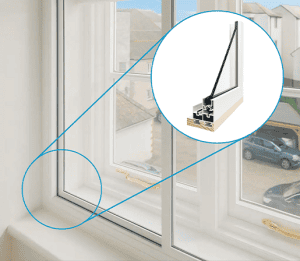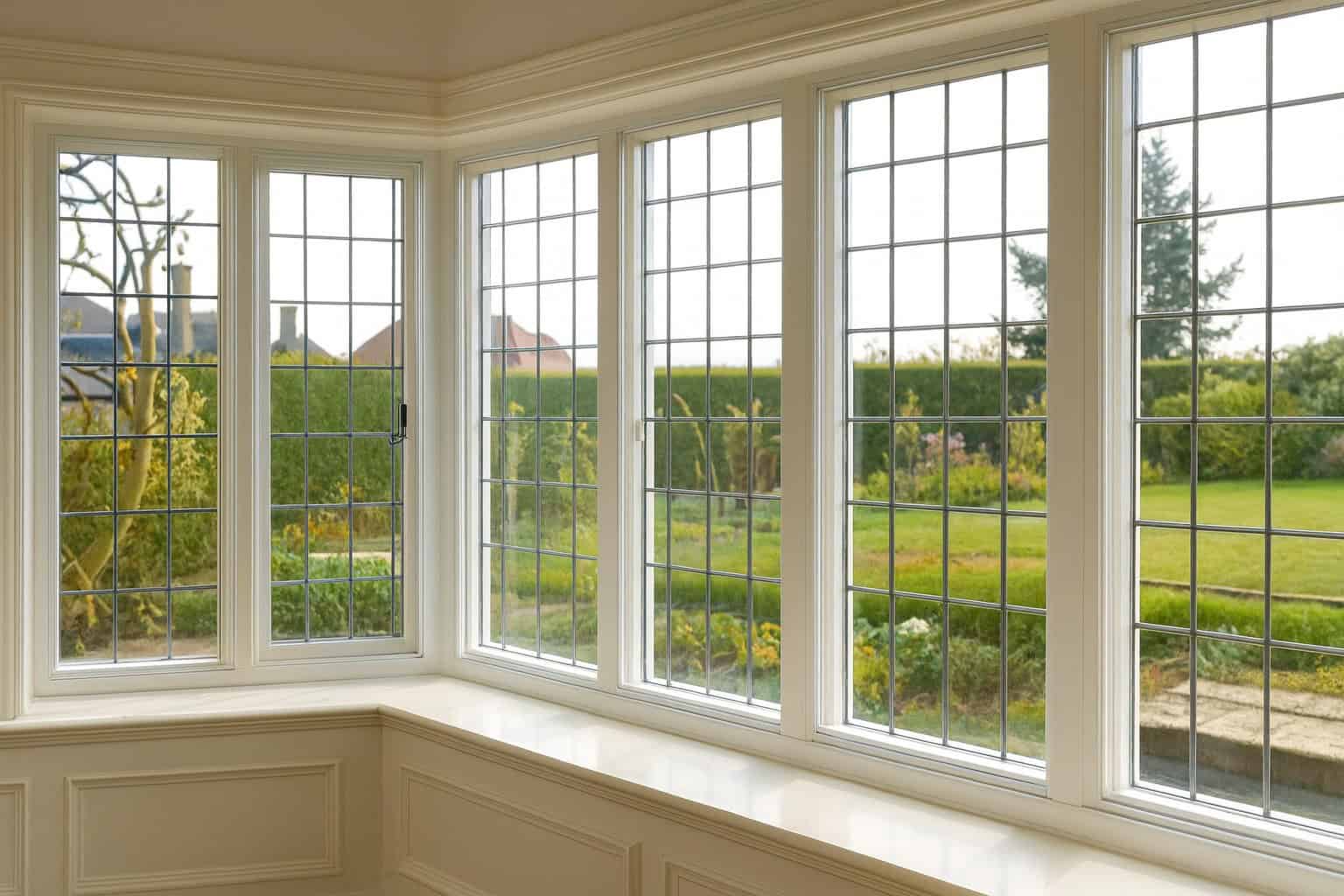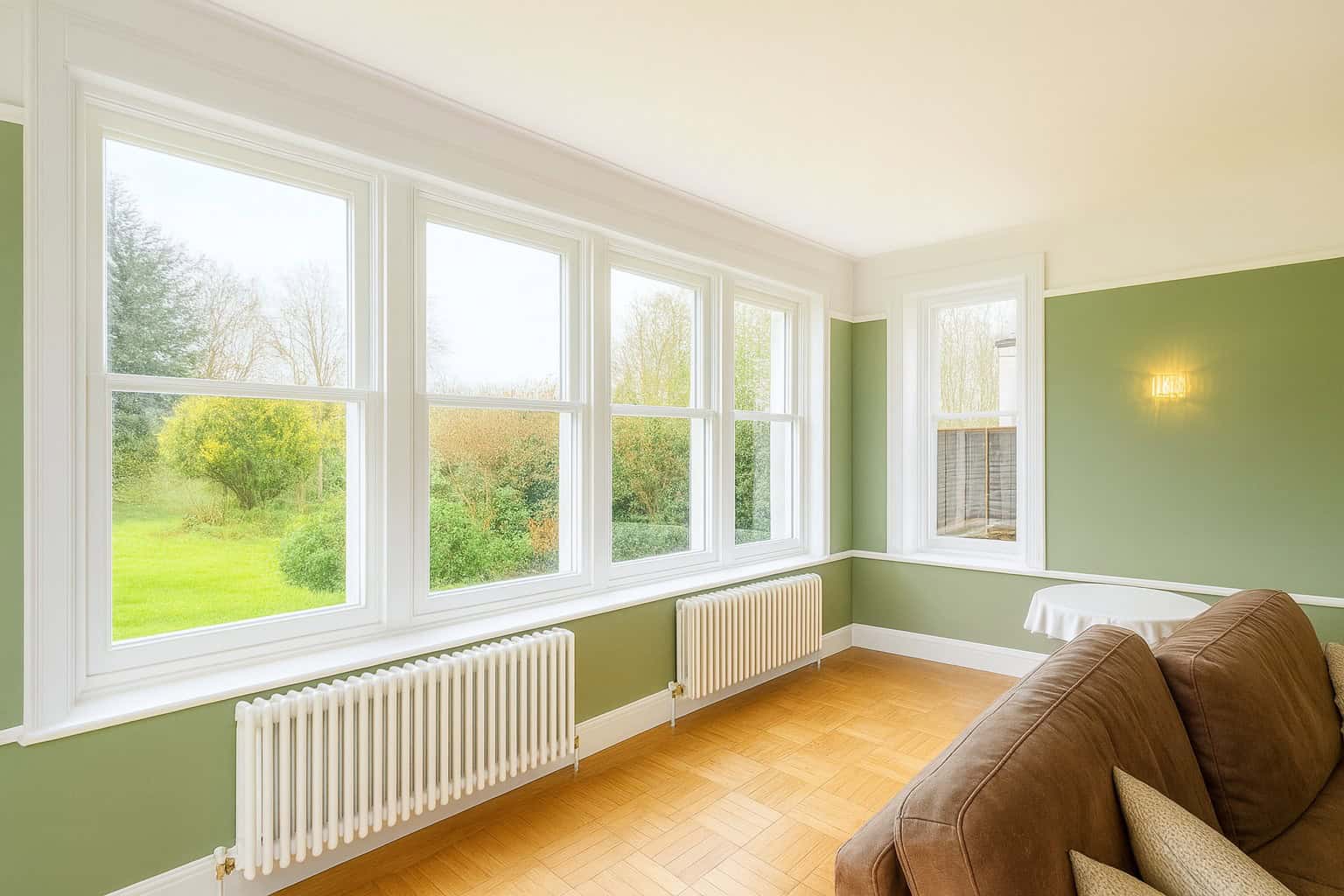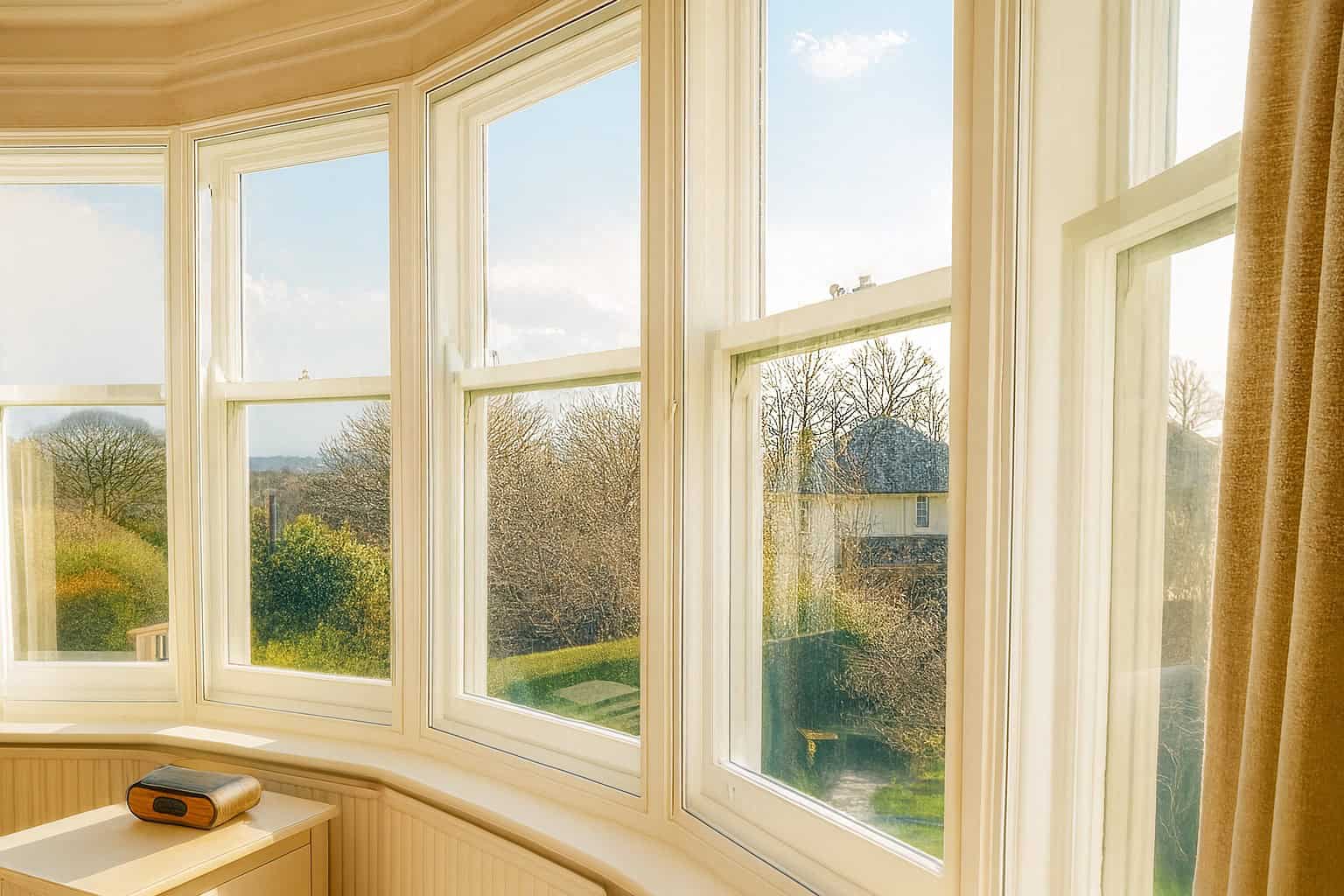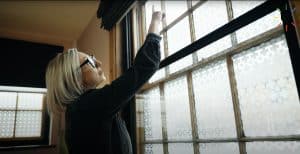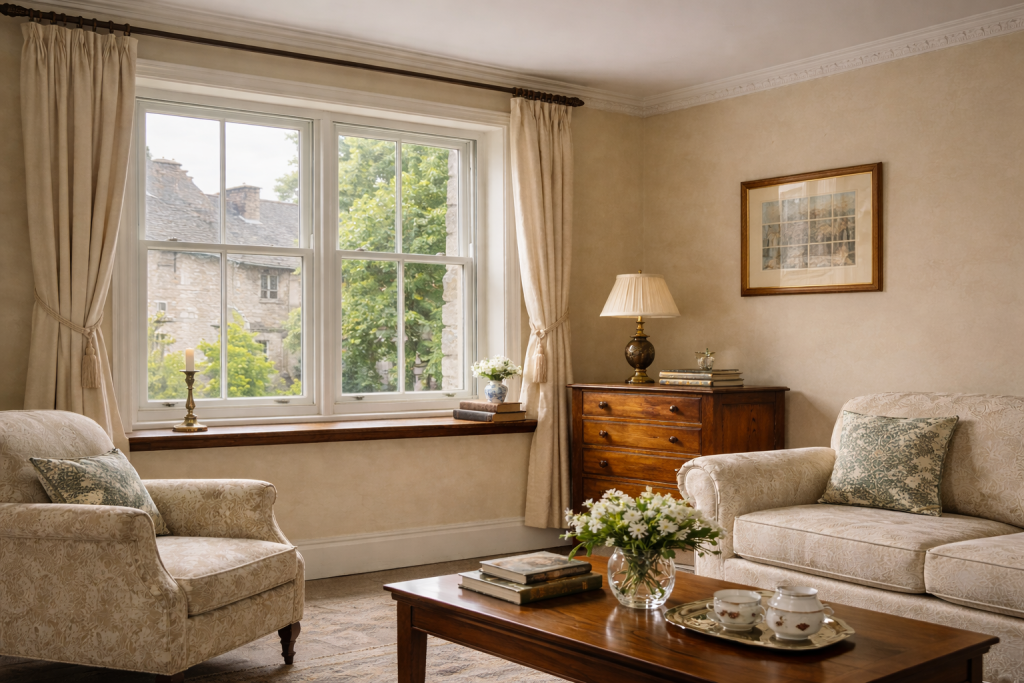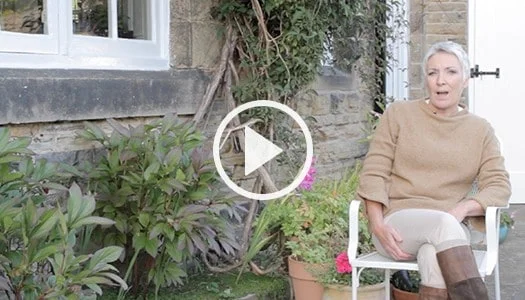Yes, we can provide most glass types, based on the specific needs of your project. The thickness of standard glass is 4 mm toughened, This safety glass is a minimum requirement where building regulations demand health and safety considerations, including the distance from floor and doors. All our glass options conform to BS6206: 1981 / BS EN 12600 for impact resistance. We do not offer float (non-safety glass). Subject to panel size this may default to a thickness of 6 mm toughened. Laminated, Acoustic, Thermal Low-E, and Obscure glass options can be accommodated. The standard for Sliding, Lift-Out, Hinged & Insert panels are single glazed.
This ensures the frame profiles are manageable size to operate as an unobtrusive secondary window, creating a double-glazed arrangement with the primary window. This offers significantly higher soundproofing performance than double glazing (which is a poor acoustic barrier) thermally it will offer equivalent thermal performance to many double-glazed products – see the performance data in the Help Centre
- The Vision range can accommodate a thickness of up to a 6.8 mm glass.
- The Vision Ultra Panel fits the standard frame options but can accommodate between an 8.8 mm to a 10.8 mm glass.
- The Vision HD Hinged System can accommodate up to a 28 mm Sealed double glazed unit.
See our Full Glass Ranges options
What is Low-E Glass?
Low-emissivity glass (or low-e glass as it is commonly referred to) is a type of energy-efficient glass designed to prevent heat escaping through your windows to the cold outdoors. Low-e glass such as Pilkington K Glass™ Range has an invisible coating which reduces heat transfer and reflects interior heat back into your room. This can offer a 5-10% increase to the thermal insulation performance of a non-coated glass.
With secondary glazing it is a hard coat application, it has a robust quality, but can be scratched if abrasive materials are used to clean the glass, see maintenance.
What is Laminated Glass & Acoustic Laminate Glass.
Both are basically the same structure, with 2-layers of glass sandwiching a polymer sheet, the plastic film is usually 0.4 mm or 0.8 mm thick, so a 6.4 mm laminate is 2 layers of 3 mm glass either side of a 0.4 mm film, an 8.8 mm laminate is 2-layers of 4 mm glass either side of an 0.8 mm film.
With a standard laminate, the plastic layer will increase impact resistance and a high performing safety / security option. With the Acoustic Options, it is exactly the same make-up, but the polymer liner is a material called Polyvinyl butyral (PVB) which enhances the ability to absorb and dissipate the sound energy within the glass structure more effectively. Obscure glass options are available but priced on application.
Obscure glass options are available but priced on application.

